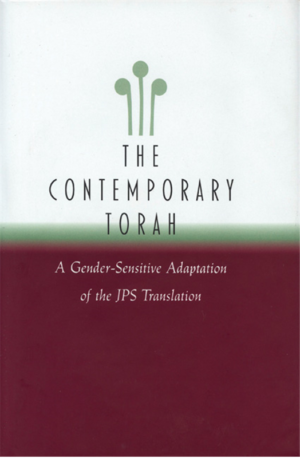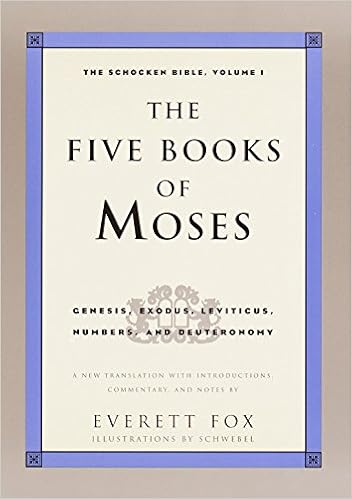Start Reading
Contents
Versions
Dedicated by an anonymous donor in honor of all women and girls who study, teach, and transform Torah.
Read the preface to The Contemporary Torah
See the Dictionary of Gender in the TorahRead More
Read the preface to The Contemporary Torah
See the Dictionary of Gender in the TorahRead More
English
With an interpolated translation and commentary based on the works of the Lubavitcher Rebbe
Copyright 2015-2024 Chabad House Publications, Los Angeles
Director and General Editor: Rabbi Chaim Nochum Cunin
Editor-in-Chief: Rabbi Moshe Yaakov Wisnefsky
Please note: The inclusion of this text does not constitute an endorsement by Chabad House Publications of any other texts.Read More
Copyright 2015-2024 Chabad House Publications, Los Angeles
Director and General Editor: Rabbi Chaim Nochum Cunin
Editor-in-Chief: Rabbi Moshe Yaakov Wisnefsky
Please note: The inclusion of this text does not constitute an endorsement by Chabad House Publications of any other texts.Read More
Source: chabadhousepublications.org
Digitization: Sefaria
License: Copyright: Chabad House Publications
Miqra According to the Masorah (MAM) is a digital Hebrew edition of the Tanakh based on the Aleppo Codex and related manuscripts. It is designed for readers, and as such it contains added elements to aid vocalization of the text. For instance: When an accent is marked in an unstressed syllable, an extra accent is added in the proper place (pashta, zarqa, segol, telisha). Legarmeih and paseq are visibly distinguished. Qamaz qatan is indicated by its designated Unicode character (alternatives are documented where traditions differ about its application).
The text of MAM is fully documented. The complete introduction to the edition (Hebrew) explains the types of editorial decisions that have been made and the reasons for them (English abstract). In addition, every word in the Bible about which there is some textual concern or ambiguity includes a documentation note; these notes can be viewed conveniently here. If an error is discovered, it may be reported to User:Dovi at Hebrew Wikisource. Please check the documentation notes before reporting an error.Read More
The text of MAM is fully documented. The complete introduction to the edition (Hebrew) explains the types of editorial decisions that have been made and the reasons for them (English abstract). In addition, every word in the Bible about which there is some textual concern or ambiguity includes a documentation note; these notes can be viewed conveniently here. If an error is discovered, it may be reported to User:Dovi at Hebrew Wikisource. Please check the documentation notes before reporting an error.Read More
To enhance the quality of this text, obvious translation errors were corrected in accordance with the Hebrew sourceRead More
Die fünf Bücher Moses mit Deutscher Übersetzung von Dr. J. Wohlgemuth, Dozent am Rabbiner-Seminar zu Berlin, und J. Bleichrode, Prediger und Schuldirigent zu Berlin; Rödelheim 1899; digitized by Igor ItkinRead More
This 1917 translation by the Jewish Publication Society is in the public domain. JPS graciously shared digital images of this text with the Open Siddur Project, from which the text was imported by Sefaria.Read More
Portuguese
Ladino
Der Pentateuch, übersetzt und erläutert von Samson Raphael Hirsch. Frankfurt am Main, 1867-1878 [de]
German
Digitized by Marina StruseRead More
English
Persian translation by Mashallah Rahman Pour Davud and Hakham Musa Zargari, Otzar haTorah, 1985 [fa]
Persian
Portuguese
Portuguese
Finnish
Preface
Notes on Gender in Translation
Commentary on Translation Choices in the JPS TANAKH (RJPS)Read More
Notes on Gender in Translation
Commentary on Translation Choices in the JPS TANAKH (RJPS)Read More
Portuguese
Hebrew
Hebrew
English
Traducere preluată din humașul „Tora și Haftarot” – traducere, transliterare și adnotări după surse iudaice de rabin Șlomo Sorin Rosen
Informații și comenzi
Cuprins, note editoriale și pagini demoRead More
Informații și comenzi
Cuprins, note editoriale și pagini demoRead More
This 1941 translation published by Yehoʼash Farlag Gezelshaft is in the public domain. A transcribed digitized version was produced by Itsik "Robert" Goldenberg, et al, by the Yehoyesh Project (1998-2006) under the direction of Leonard Prager. That version was graciously shared with the Open Siddur Project, from which the text was imported by Sefaria.Read More
About This Text
Genesis (“Bereshit”) is the first book of the Torah, Judaism’s foundational text, and the only one consisting almost entirely of stories, with just three explicit laws. It tells of the origins of mankind and the Israelites, with stories on creation, Adam and Eve, Noah’s ark, the patriarchs and matriarchs - Abraham and Sarah, Isaac and Rebecca, Jacob, Leah and Rachel - and Joseph and his brothers. Its narratives depict figures as they encounter God, face wandering and exile, and grapple with conflict in family relationships
















